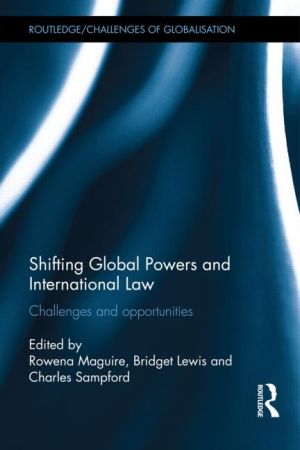
This book explores the impacts of global economic, political and cultural shifts on various international legal frameworks and legal norms. The economic growth of states throughout Asia, South and Central America and Africa is having a profound effect on the dynamics of international relations, with a resulting impact on the operation and development of international law.
This book examines the influence of emerging economies on international legal rules, institutions and processes. It describes recent and predicted changes in economic, political and cultural powers, flowing from the growth of emerging economies such as China, India, Brazil, South Africa and Russia, and analyses the influence of these changes on various legal frameworks and norms. Expert contributors drawn from a variety of fields, including international law, politics, environmental law, human rights, economics and finance, provide a broad analysis of the nature of the shifting global dynamic in its historical and contemporary contexts, and a range of perspectives on the impact of these changes as they relate to specific regimes and issues, including climate change regulation, collective security, indigenous rights, the rights of women and girls, environmental protection and foreign aid and development. The book provides a fresh and comprehensive analysis of an issue with extensive implications for international law and politics. Shifting Global Powers and International Law will be of interest to students and scholars of international relations; international law; international political economy, human rights; and development.